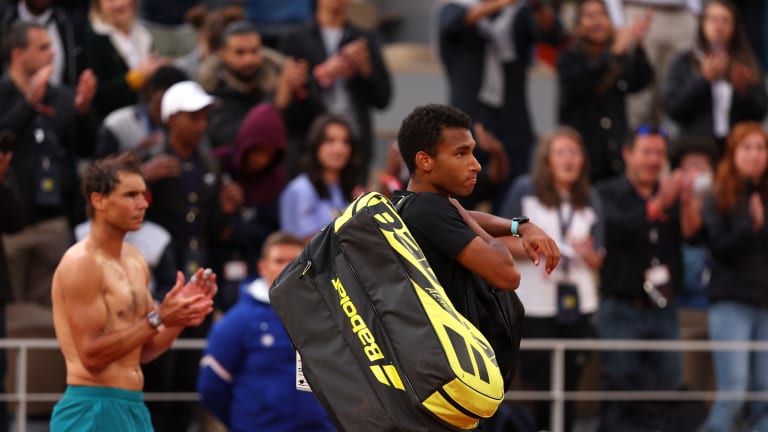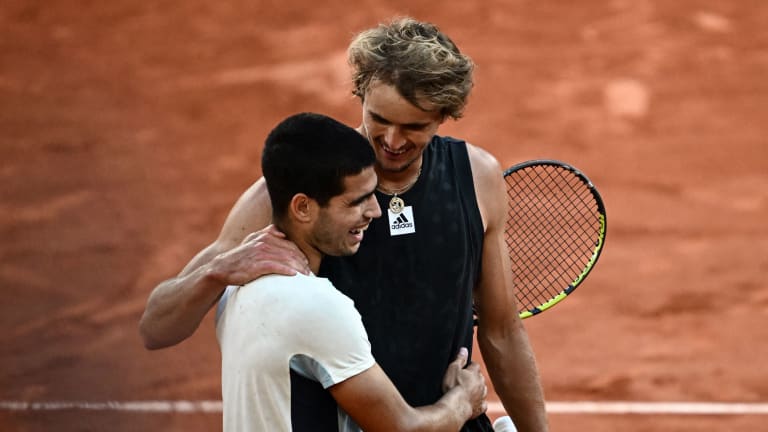The glory of five-set tennis: When titans clash on a grand scale, people notice
By Jun 17, 2022Australian Open
Cramps force Félix Auger-Aliassime out of 2026 Australian Open first round
By Jan 19, 2026Australian Open
How will Carlos Alcaraz fare in first major without Ferrero? Breaking down the Australian Open men's draw
By Jan 15, 2026Australian Open
2026 Australian Open men’s draw: Novak Djokovic lands in Jannik Sinner bottom half, Carlos Alcaraz on top
By Jan 15, 2026United Cup
United Cup, Day 3 Preview: Zverev-Griekspoor, Paolini-Bencic, Cobolli-Wawrinka on tap
By Jan 03, 2026United Cup
PHOTOS: Koala selfies for FAA & Mboko, Osaka & Raducanu spot quokkas, Ruud catches waves ahead of United Cup
By Dec 31, 2025Facts & Stats
Biggest ranking jumps in 2025: Amanda Anisimova makes biggest leap into Top 10
By Dec 03, 20252025 Year In Review
ATP Player of the Year, No. 5: Félix Auger-Aliassime
By Dec 01, 2025United Cup
Swiatek, Gauff, Osaka, Auger-Aliassime, Zverev among 2026 United Cup entrants
By Nov 17, 2025ATP Finals
"Felt like I could do everything": Carlos Alcaraz books dream ATP Finals title tilt with Jannik Sinner
By Nov 15, 2025The glory of five-set tennis: When titans clash on a grand scale, people notice
The best players recognize that they have no precious energy of any kind to waste in the throes of a competitive five-setter.
Published Jun 17, 2022
Advertising
Advertising

FAA was the only competitor who pushed Nadal to five sets at the latest edition of Roland Garros, losing 6-3 in their decider.
© Getty Images
Advertising

Zverev is 17-10 lifetime in five-setters, while Alcaraz is 4-1.
© AFP via Getty Images